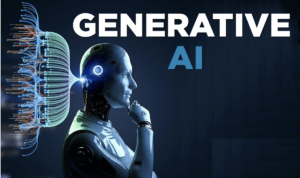Research on Quantum Error Correction by Google

The Promise of Quantum Computing
Quantum computers hold immense promise for various fields, including drug discovery, material science, and fundamental physics. The idea is that these advanced machines could solve complex problems much faster than traditional computers. In some cases, tasks that would take classical computers billions of years to complete might only take hours on a quantum computer. However, realizing this potential requires overcoming significant challenges, particularly in ensuring their reliability.
Challenges of Quantum Computing
One of the main issues with current quantum computers is their vulnerability to errors. Quantum systems are sensitive to external noise, which can disrupt their operations more than conventional computers. Because of this, effective error identification and correction are essential for making quantum computers dependable. Without strategies to accurately find and rectify these errors, the advantages that quantum computing could offer will remain largely untapped.
Introducing AlphaQubit
A recent development in this arena is AlphaQubit, an artificial intelligence (AI)-based decoder designed to identify errors in quantum computing processes. This innovative tool was the result of a collaboration between Google DeepMind, which specializes in machine learning, and Google Quantum AI, experts in error correction techniques. The debut of AlphaQubit is a significant advancement in the quest to create reliable quantum computers.
How AlphaQubit Works
AI Integration: AlphaQubit leverages machine learning algorithms to enhance the detection of errors in quantum systems. Its ability to learn from data helps it identify patterns and predict where errors might occur.
- State-of-the-Art Accuracy: This decoder stands out due to its high level of accuracy in spotting errors within quantum computations, a crucial aspect for the practicality of long computations.
The Importance of Error Correction
Identifying and rectifying errors is not just a technical necessity; it is a crucial step toward enabling quantum computers to carry out extensive calculations efficiently. The ability to conduct longer and more complex computational tasks can pave the way for significant advancements in various disciplines. Here are a few key areas that could benefit:
Drug Discovery: Quantum computers could analyze complex biochemical systems, leading to quicker discovery of new drugs and therapies.
Material Design: They can simulate the properties of new materials, allowing scientists to develop materials with specific desired traits efficiently.
- Fundamental Physics: Quantum computing might also help solve intricate questions regarding the universe, shedding light on problems that have puzzled scientists for years.
Future Impact of Quantum Reliability
Achieving reliable quantum computing has the potential to change the landscape of numerous industries. The efficiencies gained could impact healthcare, manufacturing, and energy sectors by enabling faster and more precise analysis and solutions.
Next Steps for Quantum Computing
The successful deployment of technologies like AlphaQubit represents a step in the right direction, but much work remains to ensure that quantum computers can function consistently at scale. Continued advancements and research are necessary to refine these systems and make them more robust against noise and other errors.
In summary, while quantum computing is at an exciting crossroads with its vast potential, addressing reliability through innovations like AlphaQubit is crucial for ushering in a new era of computational technology. As this field progresses, we may soon witness groundbreaking developments across various scientific and technological domains.






